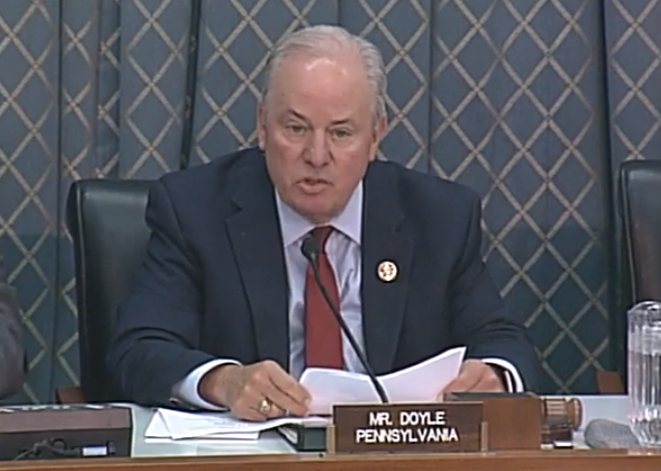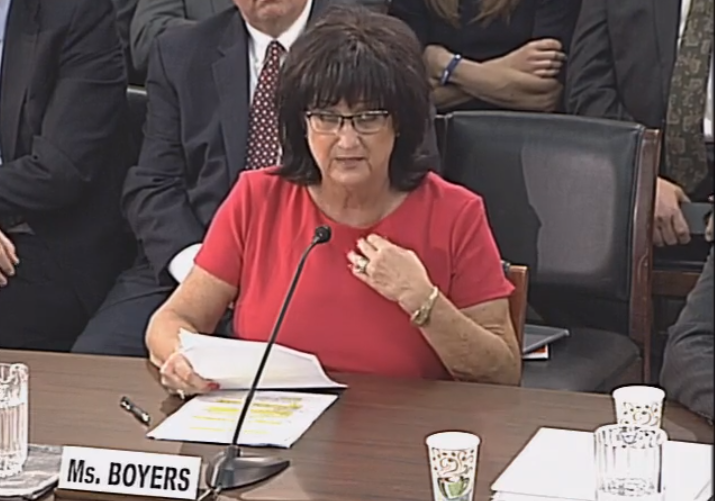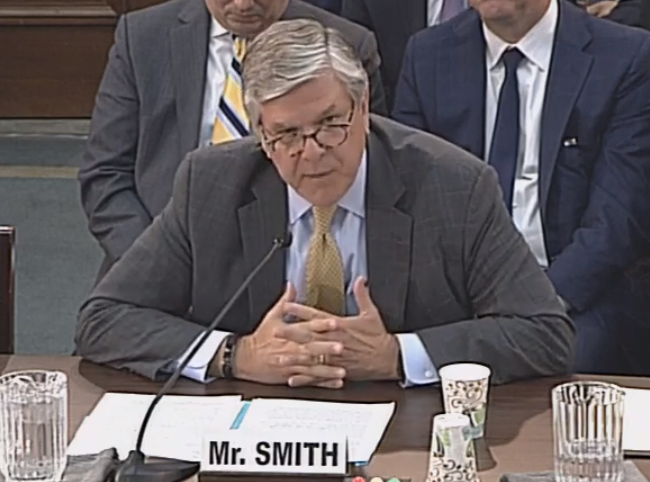House Makes First Pass at STELAR

The smarter way to stay on top of broadcasting and cable industry. Sign up below
You are now subscribed
Your newsletter sign-up was successful
The House began its review of the STELAR compulsory copyright legislation Tuesday (June 4) with a lengthy, wide-ranging discussion of video issues from short markets to cord-cutting, with frequent references from Democrats about putting consumers first, and all peppered with "dad gummits" and stronger from Patricia Jo Boyers president of BOYCOM Vision and vice chair of ACA Connects.
STELAR is the latest name for the bill, which dates from 1988, that established the compulsory license that allows satellite operators to import distant network TV station affiliates into local markets where viewers lack access to them for a variety of reasons.
Related: Copyright Office Tells Hill to Let STELAR Expire
The act must be renewed (and historically renamed) every five years or the compulsory distant signal copyright license and a provision requiring broadcasters and satellite operators and cable operators to negotiate carriage in good faith will expire.

That review kick-off--the Senate Commerce Committee's review launches June 5--came in a House Communications Subcommittee hearing featuring Boyers on one side--keep the license and make it permanent if possible--and National Association of Broadcasters president Gordon Smith on the other--let the license expire and the marketplace set the terms for carriage.
There appeared to be general agreement by legislators on both sides that broadcasters provided a vital service, including local news and weather and emergency alerts and diverse programming (oh, and home team college football games, this being Congress, which is full of fans often chiding each other over their teams).
But there was less agreement on how renewing and/or sunsetting key STELAR provisions would affect all those.
The smarter way to stay on top of broadcasting and cable industry. Sign up below
Boyers, arguably the star of the hearing for her down-home deliver and small operator viewpoint, said sunsetting the license and good faith bargaining requirements would give her less leverage in carriage deals and leave her mostly poor subs with higher bills than they already have trouble paying--payments in her "hills and hollows" Missouri system sometimes includes in-kind payments of eggs instead of bucks. It would also leave her with less money to invest in rural broadband.
Boyers said she paid $12 per month per sub for four TV stations, and a little over $50 for the other "300" channels.
Also on the side of keeping the license, and expanding the good faith negotiations rules to include no blackouts or bundled carriage deals, as a somewhat larger player, AT&T. Robert Thun, SVP of content and programming for AT&T Mobility and Entertainment, said the retrans system was broken and was leading to unsustainable retrans prices, including because of broadcasters bundling negotiations by skirting the FCC's ownership rules via programming digital subchannels or low-power stations as affiliates, which don't count toward those FCC ownership caps.
On the other side was Gordon Smith, who said the price of the broadcast localism that legislators acknowledged was so important was a business model that relied on advertising, increasingly being cannibalized by the "unregulated behemoths" of Big Tech, and retrans, with the latter an important source of funding for local content.
Related: NAB Launches Fight Against STELAR Renewal
Smith said that allowing the STELAR provisions to expire would help the viewers who want local stations but get distant signals because satellite operators are not forced to negotiate for local station carriage but instead have the "crutch" of the subsidized compulsory license for out-of-market signals.

Smith said retrans was about the marketplace compensating broadcasters for their most-watched programming, pointing out that operators pay more for some more lightly-viewed cable networks. Asked how broadcasters come up with the fees they are charging, fees that have been increasing much to the dismay of cable operators and some legislators' constituents, Smith said that while he did not know exactly, likely it was combination of comparables for other programming, as well as viewership and ratings.
Smith sounded a note of collegiality if not compromise, saying that broadcast and cable needed each other and they both had to make a buck.
He also pointed out that stations and their networks needed each other. That came after a couple of questions from legislators about just how much retrans money local stations got to keep after the networks took their cut in reverse compensation, a point of contention between affiliates and networks. Given that NAB has both in its ranks, Smith did not talk about how much each got, but only pointed out that TV stations needed the network sports and other programming while the networks obviously needed their local outlets.
Those opposed to sunsetting STELAR could take some comfort from Committee Chairman Mike Doyle (D-Pa.), who said that while he agreed that while the license and good faith components were hardly a perfect solution, allowing it so sunset would result in a "crisis," of lost viewership and invite bad behavior and consumer harm.

While the issue appeared binary--sunset or reauthorization--reauthorization could include various tweaks and additions, the number and type of which have traditionally been bones of contention in previous renewals. And a decision not to renew would likely trigger, and add urgency too, various bills do deal separately with what is and isn't good faith negotiating as well as a larger look at revamping the 1992 Cable Act or starting from scratch and writing new rules for the video marketplace.
Rep. Steve Scalise (R-La.) has been a leading voice for a major revamp and echoed that in the hearing.
That may be tough politically and logistically, but one thing everyone seemed to agree on is that the marketplace looks vastly different from when STELAR was adopted more than 30 years ago, including the over-the-top players who now dominate the regulatory conversations in Washington.
Contributing editor John Eggerton has been an editor and/or writer on media regulation, legislation and policy for over four decades, including covering the FCC, FTC, Congress, the major media trade associations, and the federal courts. In addition to Multichannel News and Broadcasting + Cable, his work has appeared in Radio World, TV Technology, TV Fax, This Week in Consumer Electronics, Variety and the Encyclopedia Britannica.

